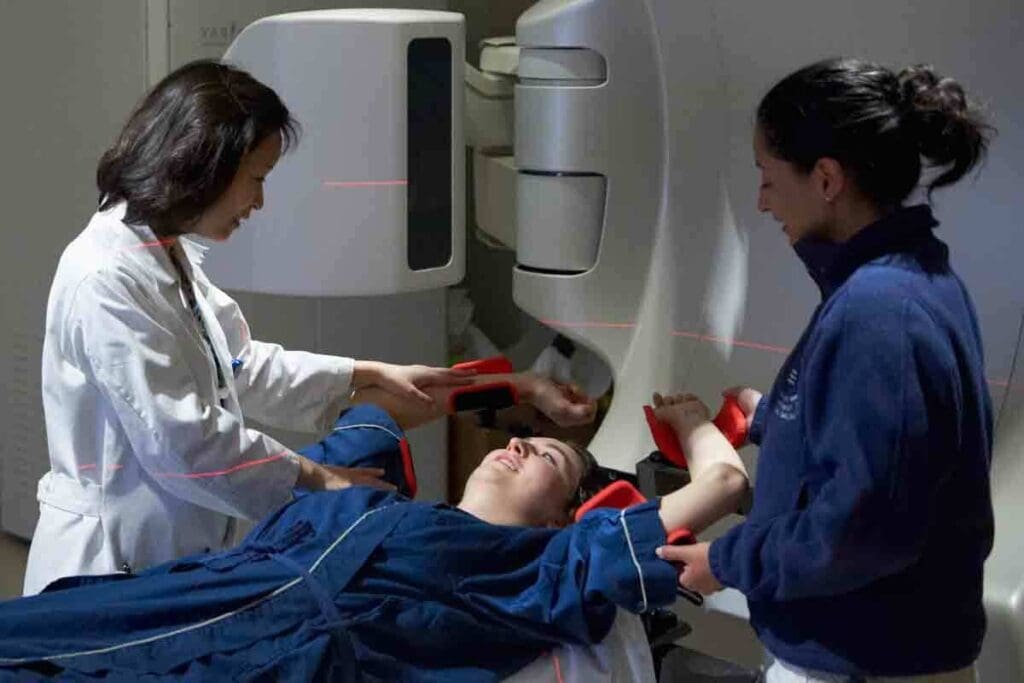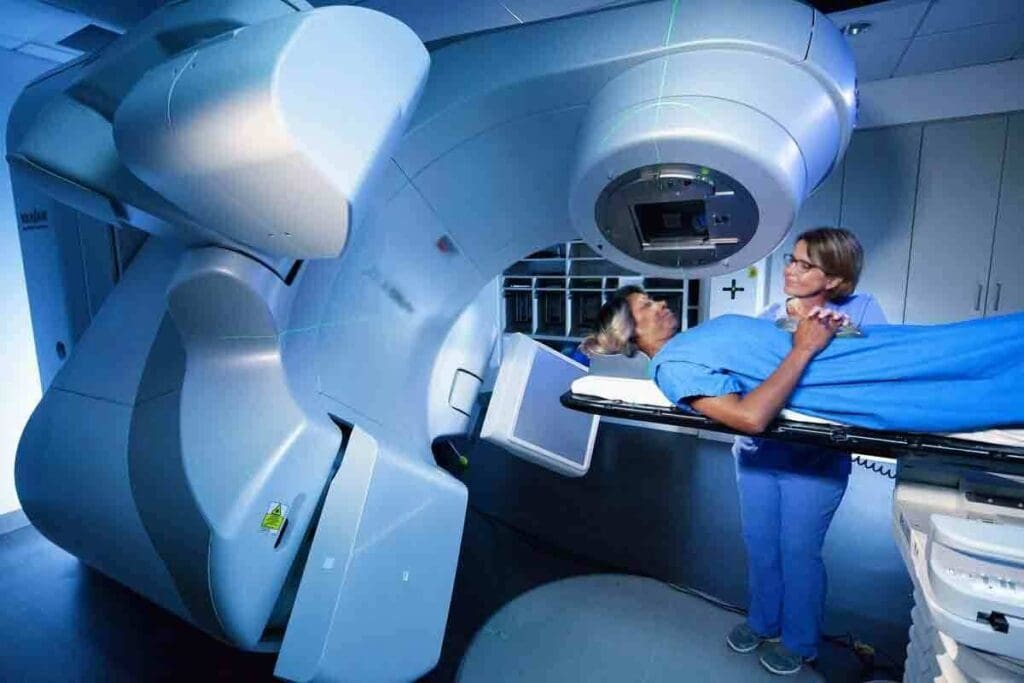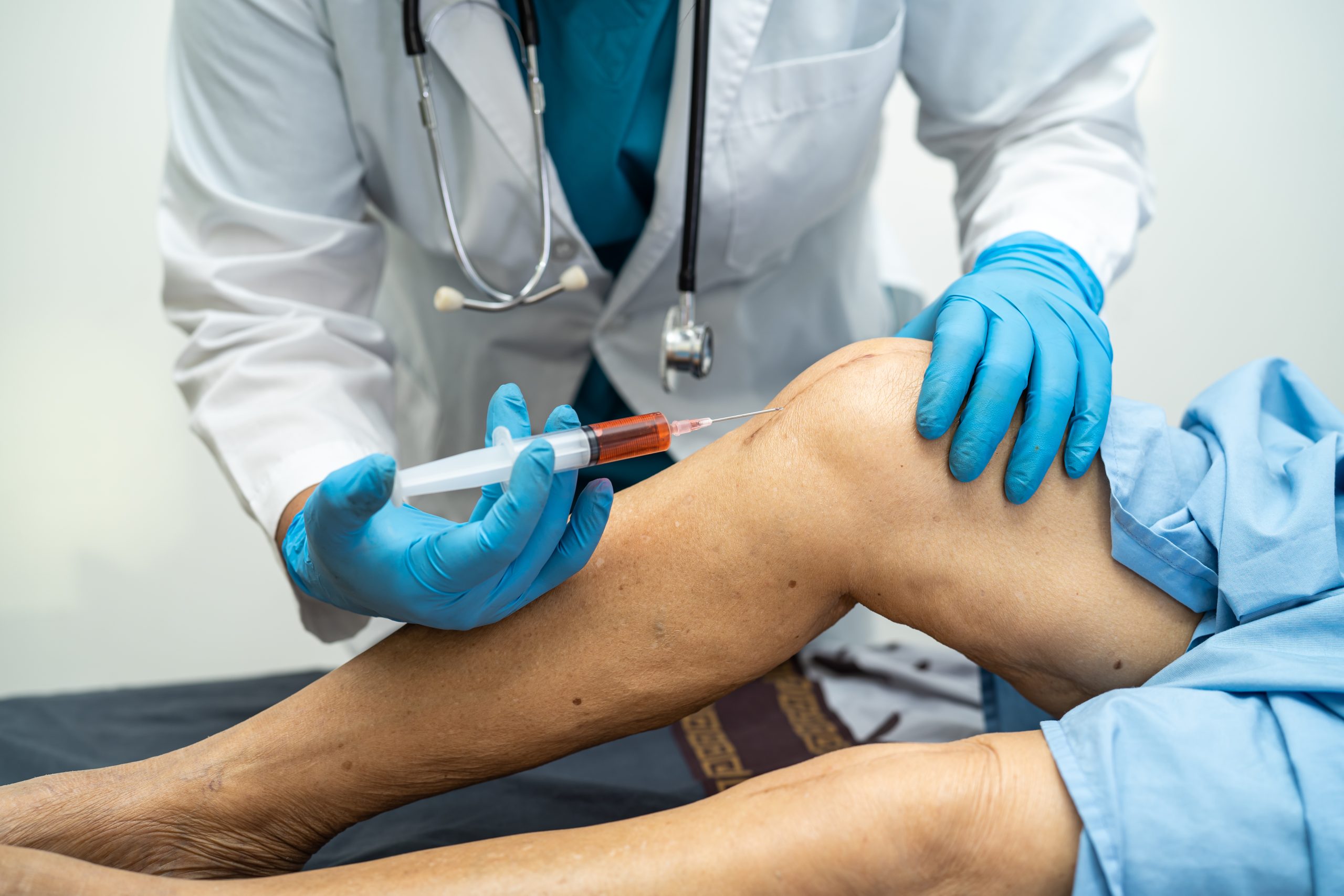Last Updated on November 27, 2025 by Bilal Hasdemir

Many patients wonder how to prepare for radiation therapy, as the process can seem overwhelming at first. But with the right guidance and support, you can feel more confident and ready. Knowing what to do before radiotherapy is essential — it helps you achieve the best results and experience fewer side effects.
At LivHospital, our specialists guide you through every step of how to prepare for radiation therapy, from your first consultation to each treatment session. Attending simulation appointments, following diet or fasting instructions, and informing your doctor about past treatments are all key steps. We’re here to support you, making sure you understand the process and feel fully prepared.
Key Takeaways
- Attend all scheduled simulation appointments.
- Follow the specific diet or fasting instructions provided by your healthcare team.
- Report all prior imaging and treatments to your radiation oncologist.
- Understand the treatment process and what to expect.
- Stay informed and ask questions to your healthcare provider.
Understanding Radiation Therapy Basics

It’s important for patients to know the basics of radiation therapy. This treatment uses high-energy particles or waves to kill cancer cells. It targets a specific area of the body.
What Is Radiation Therapy and How Does It Work
Radiation therapy damages cancer cells’ DNA, stopping them from growing. This damage comes from high-energy radiation. It can be from a machine outside the body or a radioactive material inside.
The aim is to give the right amount of radiation to the tumor. This way, it harms the cancer cells but not the healthy tissues around them. New technology has made this treatment more precise, reducing side effects.
Common Types of Radiation Treatments
There are several types of radiation therapy, each used for different reasons. The main types are:
- External Beam Radiation Therapy (EBRT): This is the most common type. A machine outside the body sends radiation beams to the tumor.
- Internal Radiation Therapy (Brachytherapy): This involves placing radioactive material inside the body, close to the tumor.
- Stereotactic Body Radiation Therapy (SBRT): It uses high doses of radiation for small tumors in a few sessions.
- Intensity-Modulated Radiation Therapy (IMRT): A type of EBRT that changes the radiation beam’s intensity. This makes treatment more precise and spares healthy tissues.
Knowing these basics helps patients make better choices about their care. It also prepares them for what to expect during treatment.
How to Prepare for Radiation Therapy: Essential First Steps

Before starting radiation therapy, it’s important to prepare well. You need to understand the process, talk to your radiation oncologist, and gather important information.
Initial Consultation with Your Radiation Oncologist
Your first meeting with the radiation oncologist is key. They will explain your treatment plan and what to expect. This is also a chance to ask questions and get a clear understanding of the process.
Questions to Ask Before Starting Treatment
It’s helpful to ask questions before starting treatment. You might want to know about side effects, how to manage them, and what support is available.
- What are the possible side effects of radiation therapy?
- How can I handle side effects during treatment?
- What support services are there for me during treatment?
Gathering Medical Records and Previous Imaging
It’s important to gather your medical records and previous images. This helps your oncologist understand your history and plan your treatment.
| Essential First Steps | Description |
| Initial Consultation | Discuss the treatment plan and expectations with your radiation oncologist. |
| Ask Questions | Understand possible side effects and support services. |
| Gather Medical Records | Give your oncologist your medical history and previous images. |
The Simulation Appointment: What to Expect
Knowing what to expect at your simulation appointment can make you feel less anxious. It helps you get ready for radiation therapy.
Purpose of the Simulation Session
The simulation session is a key part of getting ready for radiation therapy. Your team will use CT scans to map out the area to be treated. This helps us pinpoint the tumor or area needing treatment.
Key objectives of the simulation session include:
- Determining the optimal treatment position.
- Identifying the precise area to be targeted by radiation.
- Creating a customized plan tailored to your specific needs.
Positioning and Immobilization Devices
To ensure accurate radiation therapy, staying in the same position is key. We use molds, casts, or masks to keep you in the right spot.
| Device Type | Purpose | Benefits |
| Molds or Body Casts | To immobilize the body or a specific part. | Ensures consistent positioning, reducing movement during treatment. |
| Head and Neck Masks | To secure the head and neck in place. | Provides precise targeting of the treatment area, minimizing exposure to surrounding healthy tissues. |
| Leg or Arm Supports | To support limbs during treatment. | Enhances comfort and maintains the treatment position. |
Skin Markings and Their Importance
During the simulation, your therapists will make skin markings. These are key to accurate radiation therapy delivery. They ensure the treatment beam hits the right spot every time.
We know the simulation appointment is a big part of your radiation therapy. By planning well for this session, we make sure your treatment is safe and effective.
Physical Preparation for Radiation Treatment
Getting your body ready for radiation therapy is key to lessening side effects and achieving better results. We’ll help you through this important step. It’s all about physical prep for a successful treatment.
Nutritional Guidance Before Treatment
Following certain dietary guidelines before radiation therapy can greatly help. It’s wise to talk to a nutritionist for a diet plan that fits your needs. Aim for a diet full of proteins, fruits, and veggies.
| Nutritional Element | Recommended Foods | Avoid |
| Proteins | Lean meats, fish, eggs, dairy | Processed meats |
| Fruits and Vegetables | Colorful fruits, leafy greens | Raw or undercooked items are not recommended for those who are immunocompromised |
Clothing for Treatment Sessions
Wear comfortable clothing for your radiation treatment days. Choose loose, easy-to-access outfits. Steer clear of clothes with metal or tight bands that might get in the way.
Skin Care Recommendations
Good skin care before radiation is essential. Keep your skin clean and moisturized. Don’t put lotions, creams, or perfumes on the treatment area on treatment days. Use gentle products and ask your radiation oncologist for specific advice.
By following these tips on diet, clothes, and skin care, you can prepare your body for radiation therapy. This might help reduce side effects and make your treatment better.
Preparing for Specific Types of Radiation Therapy
Radiation therapy is used for many cancers, and how you prepare changes with each type. Each cancer is different, affecting how radiation is given. Knowing these differences helps patients get ready for their treatment.
Breast Cancer Radiation Preparation
For breast cancer, you might need to be in a special position during treatment. This ensures the radiation hits the tumor right and avoids healthy tissue. You might wear a device to keep your breasts in place.
Also, you’ll learn about skin care to reduce side effects. Talk to your doctor about any breast implants or surgeries that could impact your treatment.
Head and Neck Cancer Considerations
Head and neck cancer treatment needs careful planning. You might wear a mask or other device for precise radiation targeting.
Before starting, a dental check is key to avoiding serious issues like osteoradionecrosis. Keeping your mouth clean and managing dry mouth are also important.
Prostate Cancer Radiation Preparation
Prostate cancer treatment often includes placing fiducial markers to guide the radiation. You might also need to adjust your diet to keep your bowel and bladder consistent during treatment.
Discussing possible side effects with your doctor is vital. This includes changes in urination or bowel movements. Your doctor can help you manage these effects.
Managing Your Daily Life During Treatment
To make radiation treatment smoother, plan ahead for your daily needs. Managing your life well during this time can reduce disruptions. It also ensures you get the support you need.
Transportation Planning for Radiation Appointments
Planning your transport to and from treatment is key. Look into different options early to find the most reliable one.
- Ask a family member or friend to drive you.
- Check out public transport like buses or trains.
- Use a ride-sharing service if public transport is not an option.
Transportation Planning Tips:
| Transportation Method | Pros | Cons |
| Personal Vehicle | Convenient, flexible | Parking challenges, fuel costs |
| Public Transport | Cost-effective, reduces traffic | Less flexible, may require transfers |
| Ride-Sharing | Convenient, door-to-door service | Cost can vary, depending on service availability |
Work and Activity Scheduling
Adjusting your work and activities can help manage your daily life. Talk to your employer about your treatment schedule and any needed changes.
Think about flexible work options, like working from home or changing your hours. This can help balance your treatment and work life.
Setting Up a Support System
A support system is vital during treatment. This can include family, friends, or support groups. They can offer emotional support and help with daily tasks.
Plan your transport, adjust your schedule, and build a support system. These steps can help you manage your daily life during treatment. Being proactive can reduce the treatment’s impact on your routine and well-being.
What Not to Do During Radiation Treatment
To make your radiation treatment go smoothly, it’s important to know what to avoid. Radiation therapy is tailored to each person. Knowing what not to do can greatly improve your experience and results.
Skin Products to Avoid
Your skin may get sensitive during treatment. It’s key to avoid certain skin products that can make it worse. Avoid applying perfumes, colognes, or aftershave lotions on the treated area. These can have alcohol and fragrances that irritate your skin.
Other products to avoid include:
- Harsh soaps or cleansers
- Products containing metal (like aluminum or zinc)
- Certain creams or lotions are not approved by your radiation oncologist
One patient said, “I was told to avoid using any creams or lotions on my skin without my doctor’s okay. This really helped reduce skin reactions.” Always check with your healthcare provider before using new skin products during radiation therapy.
Dietary Restrictions During Treatment
Your diet is very important during treatment. Staying hydrated is key, so drink lots of water all day. But there are foods and drinks to avoid to lessen side effects.
Some dietary restrictions to keep in mind:
- Avoid spicy or acidic foods that can upset your stomach
- Limit caffeine intake, as it can make dehydration worse
- Avoid alcohol, as it can interact with your treatment
“Keeping a balanced diet during radiation therapy was tough, but my healthcare team’s guidance helped me manage my nutrition well.”
— Radiation Therapy Patient
Physical Activities to Limit
Staying active is good, but there are activities to limit or avoid during treatment. Listen to your body and rest when needed, as treatment can make you tired.
Some activities to be careful with:
- Avoid heavy lifting or bending
- Limit strenuous exercises if you’re feeling tired
- Be cautious with activities that could hurt the treatment area
By following these guidelines, you can make your radiation treatment smoother. Always talk to your healthcare provider for advice on managing your treatment.
Emotional and Family Considerations
When you’re getting ready for radiation therapy, think about how it will affect you and your family. This treatment can be tough, both physically and emotionally. It’s normal to feel anxious or fearful about the treatment and its outcomes.
Mental Preparation for Treatment
Getting your mind ready for radiation therapy is key. It helps to know what the treatment is, its side effects, and what to expect. Understanding these things can help lower your anxiety and make the process less scary.
Here are some ways to mentally prepare:
- Learn about radiation therapy and its effects
- Set realistic expectations with your healthcare team
- Find ways to manage stress and anxiety
Does Radiation Treatment Affect Family Members?
Yes, radiation treatment can affect family members, too. They often feel anxious or fearful along with you. Talking openly with your family can help share the burden.
“The emotional toll of cancer treatment extends beyond the patient to their loved ones. Support for family members is key in helping them cope with the challenges they face.”
Communicating with Loved Ones About Your Treatment
Talking openly with your loved ones is very important during this time. We suggest being honest about your feelings, fears, and needs. This way, your family can know how to best support you.
Here are some tips for talking to your loved ones:
- Be honest about your feelings and needs
- Keep them updated on your treatment schedule and progress
- Ask for their support when you need it
By thinking about these emotional and family aspects, you can face the challenges of radiation therapy with your loved ones by your side.
Conclusion
Getting ready for radiation therapy is a big step. It needs careful planning and support. By following the tips in this article, patients can lessen side effects and get the best results.
As you go through treatment, knowing what to expect is key. Many wonder if they can drive after therapy. Whether you can depends on where you’re treated and how you react to the therapy. Always talk to your radiation oncologist about your situation.
Understanding radiation therapy, preparing well, and managing daily life during treatment are important. With the right help and advice, many cancers can be treated successfully with radiation therapy.
FAQ
Can you eat before radiation treatment?
There are no strict food rules before radiation treatment. But it’s wise to follow your doctor’s advice. This helps avoid any side effects.
Can you drive after radiation therapy?
Driving after radiation therapy depends on your health and treatment type. Some treatments can make you tired or dizzy. Always check with your doctor first.
Can you drive yourself to radiation appointments?
You might be able to drive to appointments if you feel okay. But having someone with you is a good idea. This is true, even more so on your first visit.
What not to do during radiation treatment?
Avoid certain skin products and follow your diet plan during treatment. Also, limit activities that might make side effects worse. Your team will guide you based on your needs.
Does radiation treatment affect family members?
Radiation treatment usually doesn’t harm family members. Modern therapy focuses on the exact area being treated. Your doctor can give more details about your situation.
How do you stop radiation?
You can’t stop radiation treatment once it starts. But your team will watch your progress and adjust the plan as needed. This ensures the treatment works well and is safe.
What not to do after radiation treatment?
After treatment, follow your doctor’s post-care instructions carefully. This includes avoiding certain activities and managing side effects. Also, don’t forget to go to follow-up appointments.
How to prepare for radiation therapy for breast cancer?
Preparing for breast cancer radiation means understanding the treatment and making lifestyle changes. Your healthcare team will give you specific advice on skin care and more. This helps reduce side effects and improves treatment results.
Refernces
- National Cancer Institute. (2023). Radiation therapy and you: Support for people with cancer. https://www.cancer.gov/publications/patient-education/radiation-therapy-and-you






